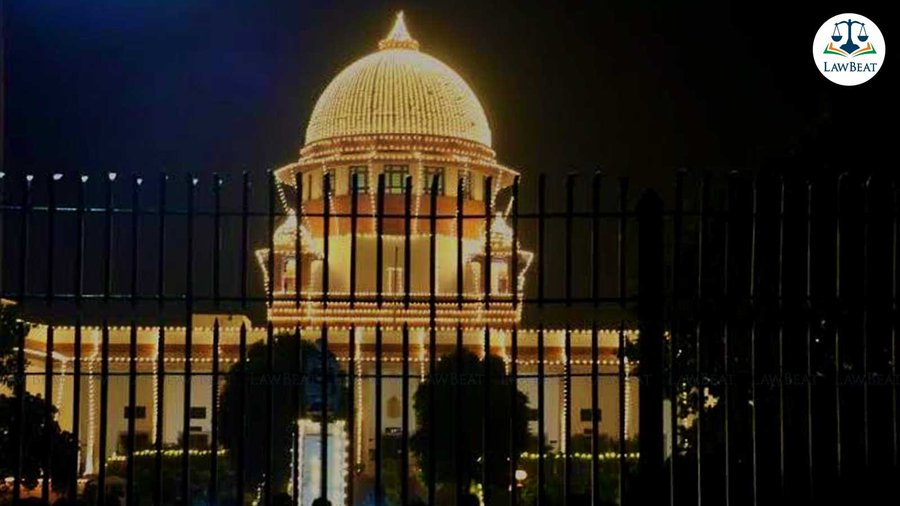SC Acquits Father-Son Duo in 1999 Dowry Death Case

Court found there was no legally admissible evidence to support the claim of dowry demands by the father and son, nor any concrete evidence of cruelty
The Supreme Court recently acquitted a man and his father in wife's dowry death and harassment case, highlighting key omissions and contradictions in the prosecution's case. Court also drew an adverse inference from the prosecution's failure to send the victim's letter to a handwriting expert for examination.
A bench of Justices Abhay S Oka and Ujjal Bhuyan set aside the high court's 2013 order which upheld the sessions court's 2001 order holding the appellants—the man and his father—guilty and awarding them a sentence of 10 years rigorous imprisonment and Rs 2,000 fine under Section 304 B and 498 A of the IPC.
The marriage between the deceased and the man was solemnized in February 1996. On the night of June 13 and 14, 1999, the deceased was found in burnt condition.
The prosecution presented two key witnesses: the deceased's father and her uncle.
In his statement, the victim's father stated that, a year before the incident, the deceased had confided in him that her father-in-law, a Captain in the Army, often remarked that her family had not provided sufficient dowry given his status. He also claimed that her husband, who was in military service, would visit home once or twice a year and demand money from her. In response to these demands, he had paid a total of approximately Rs 40,000 to Rs 45,000 to the in-laws. When he last met his daughter, she revealed that the appellants regularly pressured her to bring dowry and make financial contributions.
The court noted the victim's father had not disclosed when he last met the deceased before her death.
"We have perused the cross-examination. The four factual statements are omissions as admitted by him. He also accepted that he was unable to recollect the dates on which the amounts were paid by him. In the report submitted by him, on the basis of which the First Information Report was registered, he accepted that the fact of sending the money was not mentioned therein," the bench said.
The court also pointed out that the victim's father had admitted that the complaint did not specify that the demands made were for dowry.
"Therefore, his testimony of PW-1 regarding the demand for dowry by the appellants and payment of a sum of Rs 40,000 to Rs 45,000 is an omission. These omissions, being significant and relevant, become contradictions by virtue of the explanation to Section 162 of the Code of Criminal Procedure, 1973," the bench said.
Referring to the testimony of the deceased's uncle, the bench observed, "We may note here that in the cross-examination, he stated that he was residing separately. In his examination-in-chief, he stated that he received a letter from the deceased. After receiving the letter, he met the deceased in May 1999, and upon making an enquiry with her, she disclosed that due to insufficient dowry paid by her parents, her in-laws used to taunt her."
The bench further noted that it was an established fact that, although the Investigating Officer had collected the deceased's purported handwriting, neither the handwriting nor the letter was sent to a handwriting expert for analysis.
"Therefore, an adverse inference needs to be drawn against the prosecution," the bench said.
The court also highlighted that the uncle admitted he had not disclosed the receipt of the letter when his statement was recorded by the Naib Tehsildar. Furthermore, he acknowledged that he could not definitively confirm whether the letter was written by the deceased, as he had doubts about its authenticity.
"Even his statement that the deceased disclosed to him that her father-in-law used to pressurise her to bring more dowry is an omission, which, again being significant and relevant, will constitute a contradiction," the bench opined.
The court emphasized that to establish the offence of dowry death, the prosecution must prove that the woman's death was caused by burns, bodily injury, or occurred under abnormal circumstances. Additionally, it must be shown that the death occurred within seven years of her marriage, and that shortly before her death, she was subjected to cruelty or harassment by her husband or his relatives. Crucially, the harassment or cruelty must have been linked to a demand for dowry.
"We must note that both the witnesses have not deposed about the specific instances of cruelty or harassment apart from stating that there was a demand for dowry. As stated earlier, the version of both the witnesses regarding the demand for dowry is an omission. In the circumstances, the necessary ingredients of the offence under Section 304B of the IPC were not established," the bench said.
The court found that there was no legally admissible evidence of the demand for dowry made by the appellants and no specific evidence of any cruelty.
"In the absence of legally admissible evidence, it is not possible to sustain the conviction of the appellants," the bench said, allowing the appeal of the appellants.
Case Title: Bhupal Singh & Anr Vs State of Uttarakhand
